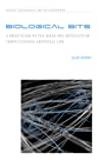
Came across a reddit thread about this book. I’ve long been interested in alife, artificial evolution, simulated creatures, etc, and have been looking to add back in more non-fiction so I figured I’d go ahead and give it a whirl.
Overal though, it seems… rather lackluster. I guess if you’re just getting into the field, it’s a good summary of what all is involved, but it doesn’t get more than a page into detail about absolutely anything. Probably I’m not the target audience.
A few quotes I found interesting/thoughts:
AI research can be considered a subset of Artificial Life, albeit one that many Artificial Life researchers are tempted to skirt around. As far as we know, intelligence only occurs in living systems. That is how it has appeared on Earth anyway. Perhaps one day intelligence might exist independently of life, but I would hazard a guess that this will only be when we, or some other living intelligence, engineer it so. It would be very surprising indeed to find a natural intelligent system that was not also alive.
I don’t often see the relationship between AI and AL, especially with modern AI being more focussed and limited in application, although it makes sense. I do find it interesting though, the idea that you can have intelligence without life. I suppose that an AI in a computer wouldn’t be alive?
It really all comes down to how do you actually define life. Speaking of which:
Autopoiesis. An organism is a self-constructing, self-organising, self-bounding chemical machine defined as a set of processes of transformation and destruction of components. It exchanges material and energy with its environment (i.e. it is an open system) to maintain its internal relations and its existence as a physical machine. This explanation is roughly based on that offered in 1972 by Chilean biologists Humberto Maturana and Francisco Varela. They coined the term autopoiesis to capture their definition in a word – an organism is self (auto) - made (poiesis).
That’s an idea at least. I know that there have been many (many (many)) arguments over the definition of life over the years, but this seems a reasonable starting point at least. I’m not sure why they would limit life to chemical machines though. Can you have virtual/synthetic life that isn’t chemical at all? Robots even?
Not all researchers are convinced by this abstract approach in Artificial Chemistry, or in Artificial Life broadly. Artificial Chemistry seems to some to be as bizarre and perhaps as worthless as alchemy is now perceived to be. Artificial Life practitioners have been subject to the accusation (originally made by biologist John Maynard Smith) that they are conducting “Fact free science”. Such criticism reminds us of the need to check our assumptions and validate our models, before drawing conclusions about (biological) reality based on (Artificial Life) simulations. A properly validated simulation is a powerful tool for understanding teh real world, computational chemists know this well. But in and of themselves, abstract computational systems are interesting, regardless of their ties to the physicochemical world. New, artificial systems can be worthy of study in their won right. They make their own facts.
It’s amusing to me to hear of gatekeepers in science. Really, it sounds like arguments between practical and theoretical physicists (for an example). Physics that has never (and may never) be able to interact with the real world… And yet they’re still absolutely doing science. Even if it’s not ‘useful’ and may never be, that doesn’t mean we shouldn’t strive for a greater understanding.
Anyways, there were a few nice quotes in the book, but what I’d really love is an entire textbook (or at least a longer chapter) dedicated to each of those sections. I really should start getting back into ALife. It’s just so neat!